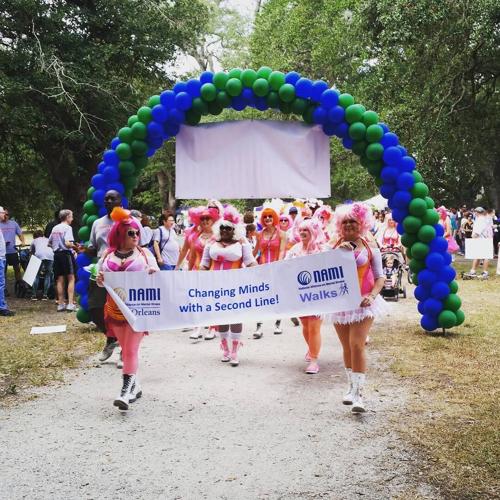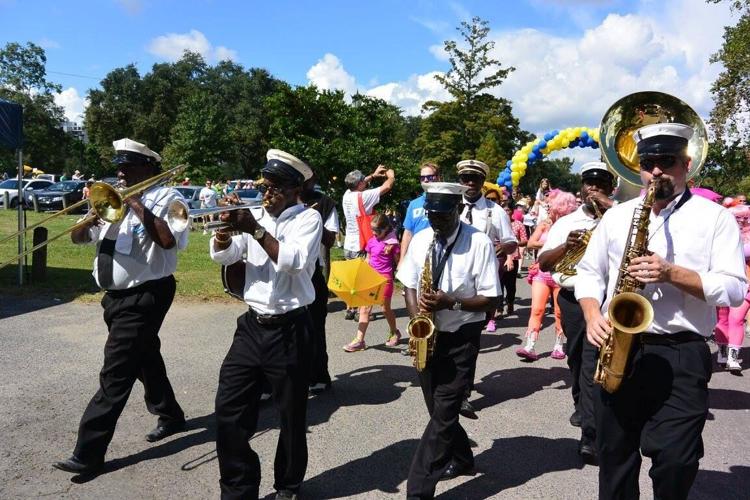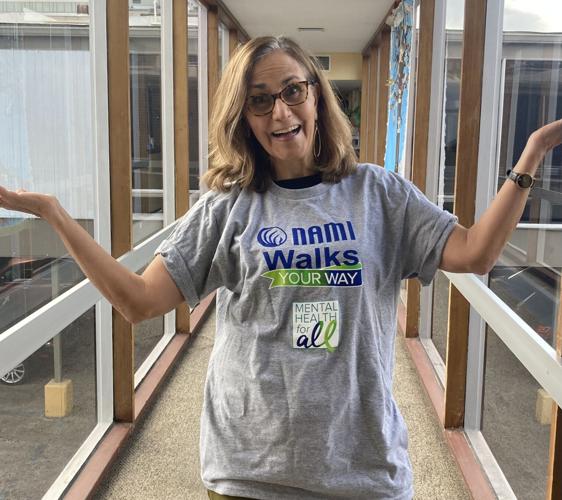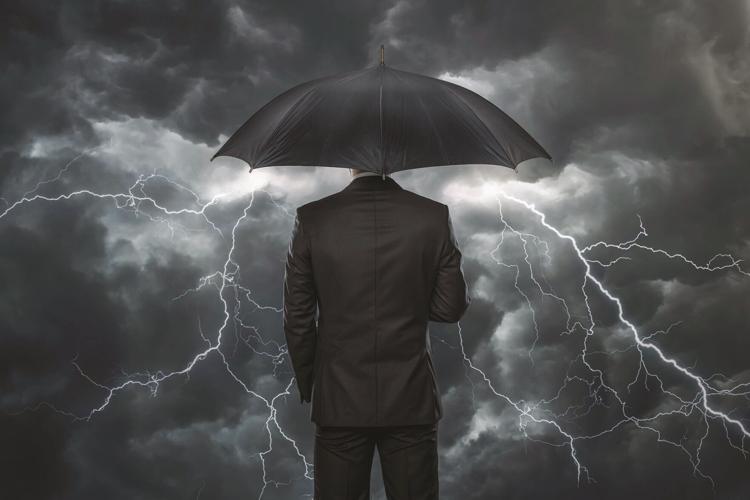A woman in the French Quarter is pacing on a street corner, screaming at no one in particular and looking menacing to passersby. She may be suffering from mental illness, even in the throes of a psychotic break with reality.
Until very recently, calling in law enforcement could spell trouble for her and others who needed a mental health intervention. Since 2015, nearly a quarter of all people killed by police officers in America had a known mental illness. That’s according to data compiled by The Washington Post after analyzing all fatal police shootings over seven years.
In the past, police academy training often did not include dealing with mental health issues. For a non-mental health professional, it can be difficult to distinguish the underlying reason for combative behavior, whether it's substance abuse, PTSD, schizophrenia or a host of other psychological disorders. Unless the situation is de-escalated, it can disintegrate rapidly.
The New Orleans chapter of the National Alliance on Mental Illness is trying to change these frightening statistics by advocating for the mentally ill and seeing that local police departments have the tools they need.
One such tool is being tested now in New Orleans.

Joseph Bodemiller
“Our Law Enforcement Assisted Diversion program, now a pilot program in the 8th District covering the French Quarter, the CBD and Treme, connects police officers with teams of case managers and peer support specialists who can step into a problematic situation and get people the help they need,” said Joseph Bodenmiller, executive director of NAMI New Orleans.
“The key to the success of this program is NAMI’s partnership with the New Orleans Health Department and NOPD," said Bodenmiller, who holds a master’s degree in clinical social work. "Our teams walk through the district, connecting with the people who need help.”
Now, at least in the pilot program area, calling the police about a person in a mental health crisis means that a mobile crisis support unit can be dispatched. The team arrives in a van, not a squad car. The point is to provide appropriate mental health interventions, as opposed to arrest and incarceration.
Mental health issues have increased across many sectors of society during the nearly two-year pandemic. For many folks whose offices have closed, social interaction with their peers is gone. The entire concept of social distancing has led to feelings of isolation, depression, anxiety and even suicide.
And now, according to Bodenmiller, the problem is so acute that finding a mental health professional can mean a months-long wait to be seen.
NAMI focuses not only on the patient, but on the caregivers surrounding them, through family support groups where they learn about brain physiology, medications, and warning signs and symptoms.
It’s the kind of support Rhonda M. Lee wishes had been available to her when she was a 12-year-old whose mother was diagnosed with bipolar disorder after years of puzzling and troubling behavior.

The NAMI walk Jan. 8 in Armstrong Park will include a second line, as did this walk in 2019.
“When my mother was in one of her manic phases, no one in the house slept because she was bouncing off the walls,” remembered Lee, whose personal account, “For the Love of Bipolar,” looks at mental illness through the eyes of a child.
“A few years into her diagnosis, my dad left, leaving me to take care of my 5-year old brother and my mentally ill mother. My mother’s sister tried to help, but she wasn’t living with us, and most of my relatives were afraid of my mother, who could at times be abusive."
At the age of 17, Lee had to have her mother committed.
"She was a danger to herself and others, and I knew she needed long-term psychiatric help," Lee said.
It took a while to regulate her mother's medications, but today she is doing well. When she needed a kidney transplant years ago, Lee donated one of hers.
Advocating for people with mental illness and increasing awareness of the problem takes boots on the ground, and that costs money. NAMI New Orleans is funded through programs that are sometimes able to bill Medicaid, through government entities like HUD, and through private fundraising.
To that end, NAMI New Orleans, serving Orleans, Jefferson, St. Bernard and Plaquemines parishes, will hold its annual walk Jan. 8 in Armstrong Park to raise money along with awareness of mental health issues.

Liz Yager
All proceeds go toward resources for people affected by mental illness, said Liz Yager, director of development for NAMI in New Orleans.
Local sponsors include Iberia Bank/First Horizon, Friends Alliance Housing, Beacon Behavioral Hospital, Rotary Club of New Orleans, River Oaks Hospital, Patio Drugs, Barrasso Usdin Kupperman Freeman & Sarver, Healthy Blue and UMC/LCMC Health, Yager said.
Da Truth Brass Band will lead the walk, starting at 10 a.m., with second-lining throughout the one-mile path.
Registration is free, but walkers are given a page online where friends and family can sponsor their walk. Go to namineworleans.org and sign up to support a cause that’s become more important than ever before.
Don’t want to walk? NAMI welcomes donations through the website.
Email Leslie Cardé at lesliecardejournalist@gmail.com
Those experiencing mental health issues can call NAMI at (504) 896-2345, and the nonprofit's mental health navigation team will connect them with the appropriate resources.
Writer Amy Crider never had any connection to New Orleans until lightning struck twice within six months.
If Dr. Alice Geoffray had been able to project herself 50 years into the future, she would have seen her name etched into the evolving New Orl…
It’s estimated that more than 10 million people are victims of domestic violence in the U.S. every year. It’s a crime that goes largely unrepo…










